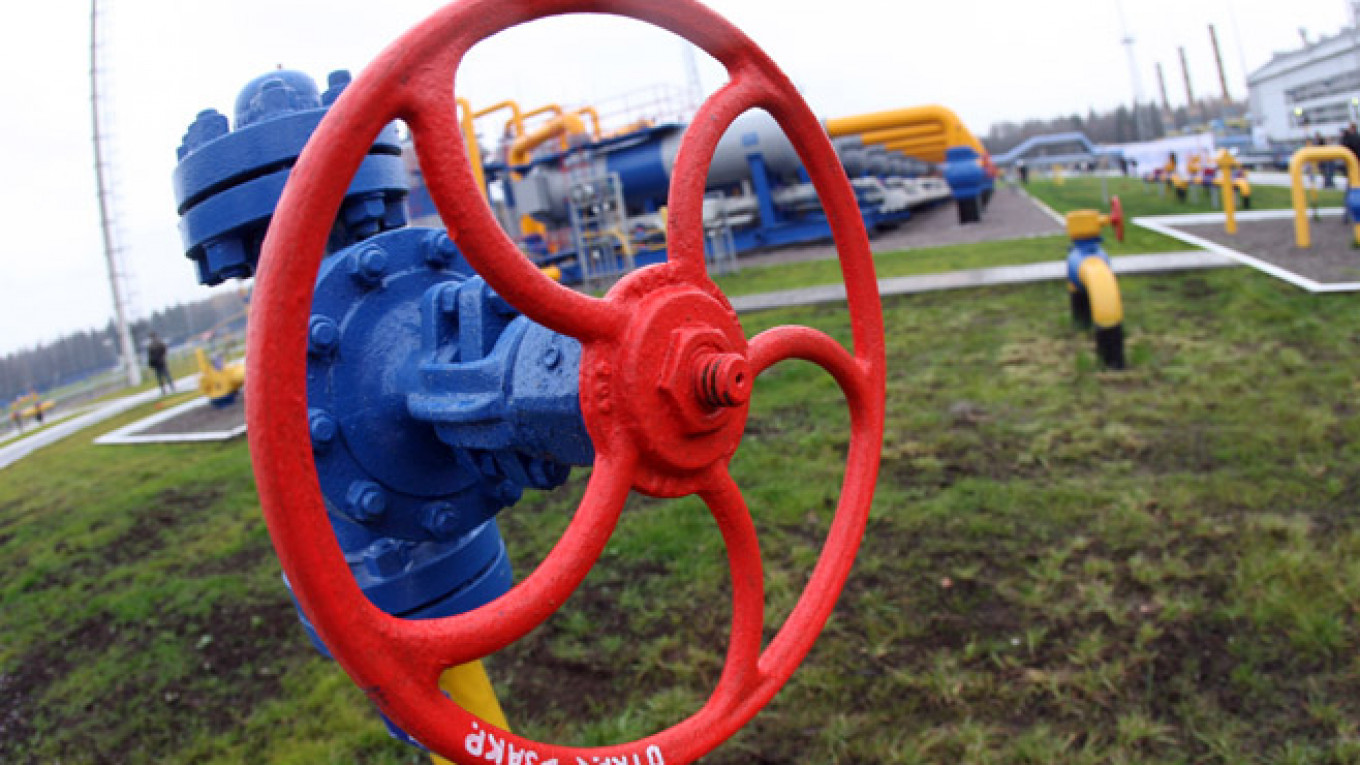Germany on Monday demanded that Ukraine forgo its plans to disrupt the transit of Russian natural gas to Europe as part of its proposed sanctions against Moscow.
German government spokesman Steffen Saibert was quoted by ITAR-Tass as saying "the federal government believes that Ukraine will not carry on with the measure Prime Minister [Arseniy] Yatsenyuk announced on Friday."
Yatsenyuk on Friday said Kiev was ready to impose a wide array of sanctions on Russia for "sponsoring terrorism, supporting the annexation of Crimea, and violating the territorial integrity of Ukraine," including putting restrictions on air flights and gas supplies to Europe.
The proposed sanctions would also target 172 Russian citizens and 65 predominately Russian companies. Restrictive measures include asset freezes, bans on privatizing state property and the refusal of licenses.
The Ukrainian government calculated that the sanctions would cost Ukraine an estimate of $7 billion in losses but said there was "simply no choice" but to implement them.
Yatsenyuk also said Ukraine will use part of the $17 billion International Monetary Fund aid to compensate for the losses and may turn to the World Bank for help.
The Ukrainian parliament was set to vote on the sanctions on Tuesday. If approved, the halt of gas transit to Europe would cut about 10 percent of the EU's overall gas supply.
On Monday, Ukraine's state-owned gas company Naftogaz said that transit to Europe would go unhindered following approved sanctions against Russia, but that companies in EU would have to revise gas purchasing contracts.
"The main idea is that transit could continue with no problems if this gas is bought at our eastern border by let's say European companies," a Naftogaz spokeswoman told Reuters. Eastern Ukraine is currently awash in violence, as pro-Russian separatists fight an increasingly desperate battle with the Ukrainian armed forces.
Currently, European companies purchase gas at Ukraine's western border.
A proposal to move the location of purchase to the east, which would theoretically put an end to gas disputes between Russia and Ukraine, has been voiced by Naftogaz officials since April, when Russian gas exporter Gazprom almost doubled the price of its gas to $480 per 1,000 cubic meters. Negotiations on a compromise deal failed, and Russia cut supplies to Ukraine after it refused to pay.
But Gazprom was not supportive of the idea because it would not be able to control the whole process of gas delivery, industry analysts said at the time. Also, the move would require the painstaking procedure of re-signing existing contracts.
See also:
Ukraine Sanctions on Russia Would Wreak Havoc on Europe's Gas Import Deals
Contact the author at [email protected]
A Message from The Moscow Times:
Dear readers,
We are facing unprecedented challenges. Russia's Prosecutor General's Office has designated The Moscow Times as an "undesirable" organization, criminalizing our work and putting our staff at risk of prosecution. This follows our earlier unjust labeling as a "foreign agent."
These actions are direct attempts to silence independent journalism in Russia. The authorities claim our work "discredits the decisions of the Russian leadership." We see things differently: we strive to provide accurate, unbiased reporting on Russia.
We, the journalists of The Moscow Times, refuse to be silenced. But to continue our work, we need your help.
Your support, no matter how small, makes a world of difference. If you can, please support us monthly starting from just $2. It's quick to set up, and every contribution makes a significant impact.
By supporting The Moscow Times, you're defending open, independent journalism in the face of repression. Thank you for standing with us.
Remind me later.






